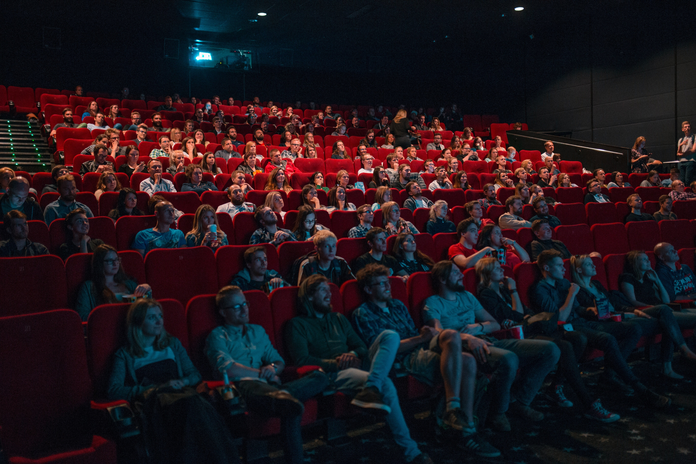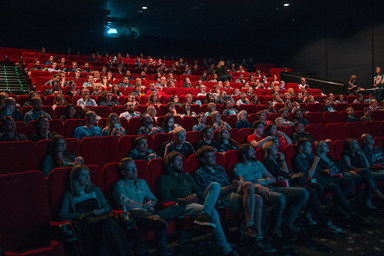2020 has not been a kind year to movies. Even before COVID-19, box office grosses have been the worst they’ve been in a while, leading people to question whether or not movie theaters would be around for much longer. But social distancing has forced movie theaters across America to close.
In the first half of March, AMC Entertainment’s stock price fell 58% and Regal Cinemas’ fell 76%. March also saw the box office hit a 20-year low, down 60% from last year. And theaters are starting to panic. A lot of theaters were already in a bad spot, accumulating a lot of debt over the years. AMC, for example, was already struggling with a $4.9 billion debt, and now that number is expected to be even higher. Movie theaters have been a staple of American culture since 1905. They have survived World Wars, The Great Depression, recessions, and even other pandemics. But coronavirus has been almost like the last nail in the coffin for this already suffering business.
The National Association of Theater Owners (NATO) recently asked the federal government for a $2 trillion bailout that would allow them to stay afloat and support the 150,000 people who work for movie theater companies. Movie theaters can’t pay their rent, pay their employees or pay any other bills if they’re not selling tickets and concessions. NATO also asked for smaller independent theaters to be included in the Small Business Loans given out by the federal government. If the bailout is granted, it would be critical for the survival of movie theaters. Without it, all theaters, big and small, will have to file for bankruptcy.
Box office sales have been on the decline for the past two years. But, before COVID-19 caused all of the theaters to close, theater owners were hopeful that 2021’s blockbuster packed year would turn things around. AMC chief Adam Aron told analysts in February, “When the 2021 box office eventually is reported, we believe it will be the pessimists and the naysayers who will turn out to have been wrong.”
With the state of movie theaters up in the air, moviegoers and filmmakers are looking for different avenues to distribute and consume their content. Studios that had movies scheduled to hit theaters right now are scrambling to figure out how to lose as little money as possible on their films. Because of the theater shutdown, this quarter will bring a loss of hundreds of millions of dollars in ticket sales. So, what else can these companies do?
Many have pushed back or delayed the release of their film. This tactic incurs a greater loss because of the money that will have to be spent, or has already been spent, on advertising. So other studios are looking for other options. Universal decided that postponing their upcoming films’ releases would not do them any favors, so they released them early. Emma, The Hunt, and The Invisible Man are now available to stream for $19.99. And although this is unprecedented, studios cutting deals with streaming services to get their movies out there for 2020, might help them stay afloat if movie theaters close for good.
Studios and movie theaters are worried that on top of all of the financial burden this will cause, there will be a great social impact as well. Richard Greenfield, a media analyst at LightShed, wonders, “To the extent that this lasts for months, do people get so in the habit of watching Netflix that they don’t want to go back to movie theaters? I think that’s a real risk that theater attendance never bounces back to the levels it once was.” There has been a nationwide increase in the use of streaming services, and studies show that when people spend more time at home, their streaming increases by 60%. So, while theaters may be suffering, streaming services are thriving.
During the Spanish Influenza, the same thing happened. Theaters were forced to close, and then when the pandemic was over, they couldn’t recover from their losses. The head of Paramount Pictures at the time bought up as many movie theaters as he could to rebuild them and get them opened. Other studios followed Paramount’s lead, but it turned into a monopoly where studios were controlling what movies were shown and every aspect of the distribution of their films. In the 1940s, the monopoly was broken up and laws were passed to ensure that would never happen again. Last year, however, the Trump Administration said they wanted to lift the restrictions that prohibited studios from owning theaters. So, maybe production companies will bail out theaters once again.
2020 is going to be a weird year in movie history. Jeff Bock, an analyst with Exhibitor Relations said, “This year’s box office is going to look like the biggest asterisk you’ve ever seen. You’ll never be able to compare 2020 to any other year and have it mean anything. It’s going to be a lost year. It just won’t be there.” Who knows how long this will last, how many movie releases go straight to streaming, how many are going to be pushed back, if theaters will survive the closure or what this will mean for the Oscars? But what we do know, is that the movie watching experience will be changed forever.
Want to see more HCFSU? Be sure to like us on Facebook and follow us on Instagram, Twitter and Pinterest



